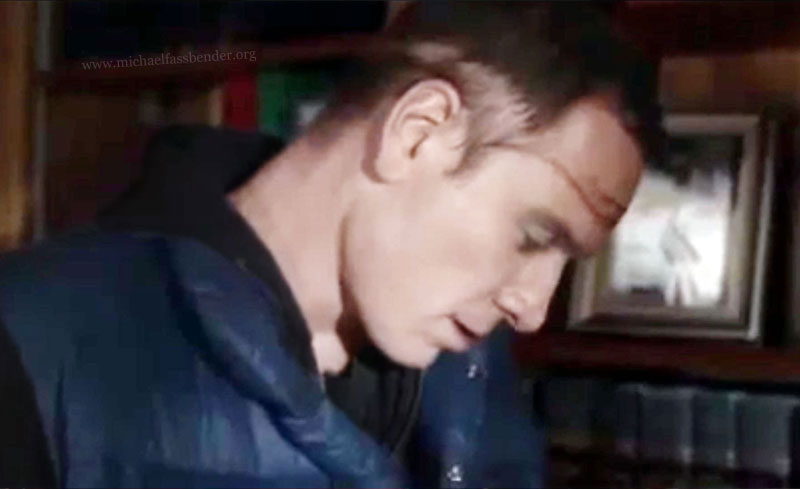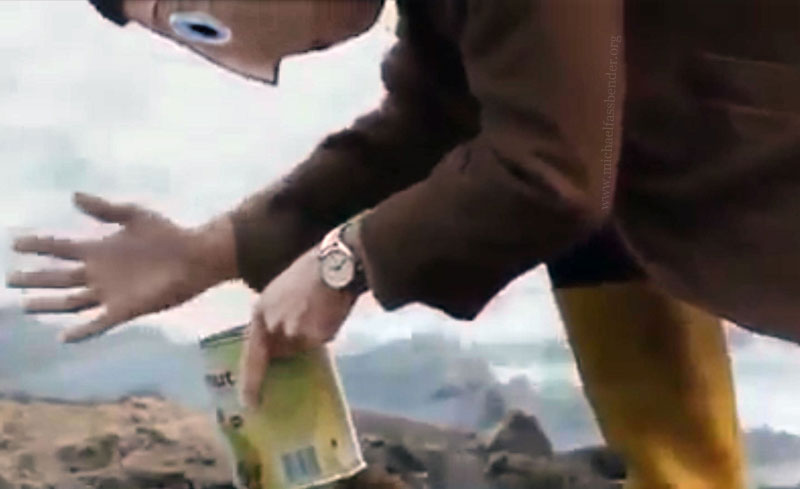
|

|

|

|

|

|

|

|

|

|

|

|


An atypical film about an atypical head case, "Frank" was inspired by the English art-pop musician Chris Sievey, aka Frank Sidebottom, who would perform wearing a large, fish-bowl-shaped papier-mache mask painted with a look of wide-eyed wonder. Audiences will feel similarly astonished: "Frank" is a genuine original in a summer sea of sameness, and a darkly comedic manifesto against the cultural status quo.
The film stars Michael Fassbender, Maggie Gyllenhaal and Domhnall Gleeson, and was directed by Lenny Abrahamson, one of the brighter lights of contemporary Irish cinema, who's done the properly ambitious thing. He's taken a story that's already a serviceably eccentric comedy and made it a profound examination of what constitutes creativity and genius—and the manner in which a social-media-driven world nurtures nothing of the kind. James Joyce saw a metaphor for Irish art in the cracked looking glass of a servant; Mr. Abrahamson sees all misunderstood art in the cracked head of a gentle lunatic.
The film's ostensible hero, however, is Jon Burroughs (Mr. Gleeson), an office drone by day, an aspiring Paul McCartney in his off hours, which he spends strolling along the beaches of his English town, conjuring up this atrocity or that against the craft of musical composition. Suddenly, the police appear. Have they heard one of his songs? No, the keyboard player of a visiting pop group is in the water, attempting to kill himself.
Well, says the band's manager, Don (Scoot McNairy), there goes tonight's gig. "I play keyboards," offers Jon. Asked if he can play C, F and G, Jon confirms he can. "You're in," says Don. As the immersed pianist tries to drown, Jon tries not to look too pleased that his dreams of rock stardom are about to come true.
Or so he thinks. The story of Jon Burroughs very closely parallels that of British journalist Jon Ronson, who co-wrote the screenplay to "Frank" with Peter Straughan, and whose first-person story in the Guardian newspaper and a recent e-book recalled his tenure as Frank Sidebottom's band mate. It was an experience of epic weirdness, which "Frank" reflects enthusiastically. Where the script departs from Mr. Ronson's memoir is in the fictional Jon's basic cluelessness about what Frank is all about—not just his music, which composer Stephen Rennicks turns into a brilliantly inaccessible amalgam of Sun Ra, Zappa and John Cage, but the delicate balancing act of Frank's band, which includes a surly rhythm section (Carla Azar, Francois Civil) and an electronic-noise maker/Theremin player and Frank devotee named Clara (Ms. Gyllenhaal), who looks at Jon the way a community gardener looks at a building developer.
Mr. Abrahamson does a balancing act of his own. Mr. Rennicks's cheery, chime-y, glockenspiel-informed soundtrack and Jon's upbeat voiceovers belie everything we see on screen—the fights, the oddness, the Brian Wilson homages (the recording of nutmeg graters, or slender tree branches being whipped through the air, or water being poured into a bucket), as the band attempts to work at a picturesque island compound on which Don has stopped paying the rent. Frank, who believes in absolute honesty ("Why cover anything up, right?" he asks, with no trace of irony) never removes the big fake head. How does he eat? Liquids, says Don, "sometimes solids, but it's not encouraged." Don and Frank met at a mental institution. Jon assumes Clara is crazy, too. "Why are you so against us finding an audience," Jon asks her, "if it's not because you're mentally ill?"
And that is the signature line of the movie, once Jon's cloying diary entries are explained: He's blogging. And he's posted videos of the band to YouTube, which establishes them not as innovative musicians, but as the kind of freak show that draws a viewership.

"Sooner or later," Don tells Jon, early in the game, "you're going to get the feeling, 'Why can't I be Frank?' Or maybe, 'I can be Frank.'" What Don leaves out is Jon's other option: "Why can't I change Frank?" For all its moments of dry hilarity, "Frank" is a story about the perpetual tension between vision and mediocrity, integrity and celebrity. It couldn't be more classic, or of the moment.
Mr. Fassbender, the Irish actor and an Oscar nominee last year, is the man inside the mask. The obvious question: How do we know? Partly because of the way he moves, partly because the nature of the film is such that a fraudulent Fassbender wouldn't be funny at all. "Frank" is, though. And wonderfully sad as well.
